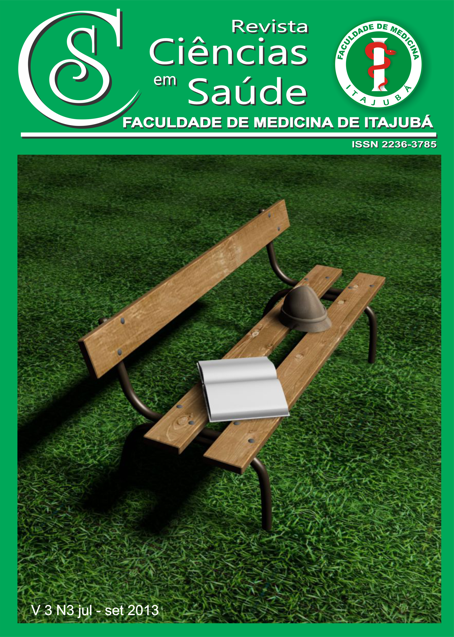Significados e Sentimentos de Cuidados Paliativos: o Discurso do Sujeito Coletivo de Acadêmicos de Enfermagem e Medicina/ Meanings and Feelings of Palliative Care: the Collective Subject Discourse of Nursing Students and Medicine
Main Article Content
Abstract
Objetivos: identificar as características pessoais e acadêmicas dos alunos de enfermagem e medicina em seus últimos períodos escolares; conhecer os significados de cuidados paliativos e identificar os sentimentos desses acadêmicos em relação aos pacientes com necessidades de cuidados paliativos. Materiais e métodos: o estudo foi de abordagem qualitativa, do tipo exploratório, descritivo e transversal. A amostra se constituiu de 50 acadêmicos da Universidade do Vale do Sapucaí, Pouso Alegre, MG, que se encontravam no último ano do curso, sendo 25 de enfermagem e os demais de medicina. A amostragem foi intencional ou teórica. Utilizaram-se dois instrumentos para coleta de dados: Caracterização pessoal e acadêmica e o Roteiro de entrevista semiestruturada. Empregaram-se as estratégias metodológicas do Discurso do Sujeito Coletivo para a análise dos dados. Resultados e discussão: do tema significados de cuidados paliativos, emergiram as seguintes representações sociais: qualidade de vida sem visar à cura, diversos significados e cuidados. Do tema sentimentos relacionados aos cuidados paliativos, identificaram-se que estes foram de conotação positiva e negativa, bem como sentimentos de ambivalência. Em relação aos motivos, encontraram-se como ideias centrais principais as concepções de diversos aspectos, ajudar ao paciente e fazer bem ao paciente. Conclusão: os significados, sentimentos e seus motivos foram muito diversificados, assumindo caráter multidimensional.
Palavras chave: Cuidados Paliativos; Sentimentos; Acadêmicos.
ABSTRACT
Objectives: To identify the characteristics of personal and academic nursing and medical students in their last school term; know the meaning of palliative care and identify the feelings of those academics in relation to patients with palliative care needs. Materials and methods: The study was a qualitative, exploratory, descriptive and transversal. The sample consisted of 50 students of the University of Vale do Sapucai, Pouso Alegre, MG, who were in the final year, 25 nurses and other medical. The sample was intentional or theoretical. Two instruments were used for data collection: Characterization personal and academic roadmap and semi-structured interview. Were employed the methodological strategies of the Collective Subject Discourse for data analysis. Results: the meaning palliative care, social representations emerged the following: quality of life without seeking to cure, many meanings and care. Theme feelings related to palliative care, were identified the sewere positive and negative connotations as well as feelings of ambivalence. Regarding the reasons, it was found as the main central ideas conceptions of various aspects, to help the patient and makegood to the patient. Conclusion: the meanings, feelings and motives were very diverse, assuming multidimensional.
Keywords: Palliative Care; Feelings; Academics.
Article Details
Authors maintain copyright and grant the HSJ the right to first publication. From 2024, the publications wiil be licensed under Attribution 4.0 International 
 , allowing their sharing, recognizing the authorship and initial publication in this journal.
, allowing their sharing, recognizing the authorship and initial publication in this journal.
Authors are authorized to assume additional contracts separately for the non-exclusive distribution of the version of the work published in this journal (e.g., publishing in an institutional repository or as a book chapter), with acknowledgment of authorship and initial publication in this journal.
Authors are encouraged to publish and distribute their work online (e.g., in institutional repositories or on their personal page) at any point after the editorial process.
Also, the AUTHOR is informed and consents that the HSJ can incorporate his article into existing or future scientific databases and indexers, under the conditions defined by the latter at all times, which will involve, at least, the possibility that the holders of these databases can perform the following actions on the article.

